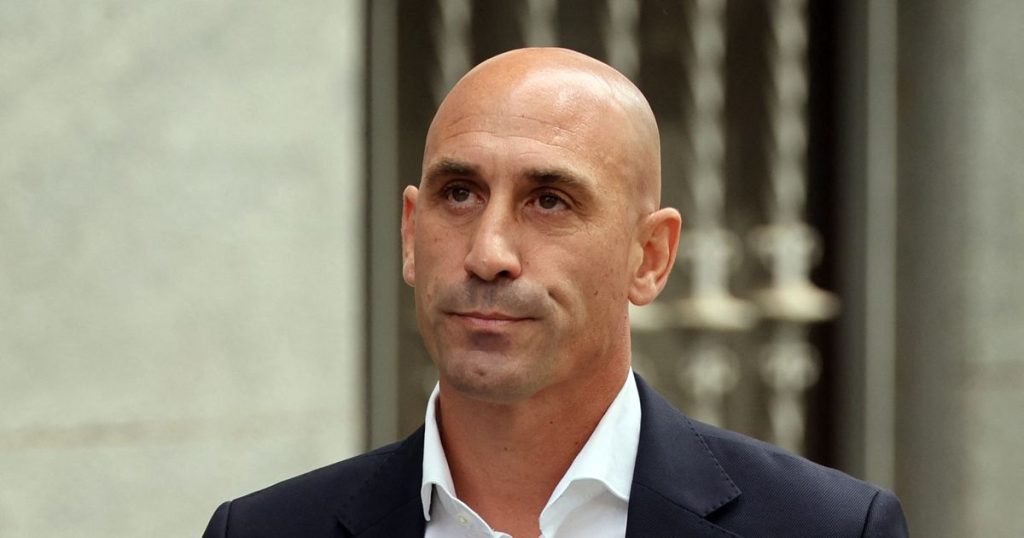Luis Rubiales, the former Spanish FA president, was met by police in Madrid after arriving on a plane from Dominican Republic, in connection with a corruption probe involving a £100m deal to relocate the Spanish Super Cup tournament to Saudi Arabia. The Spanish FA agreed to the deal in 2019, expanding the tournament and changing its scheduling. Rubiales’ apartment and other locations were raided, with him living in Dominican Republic for two months before returning to Madrid.
Spanish media reported that Rubiales was seen stepping off the plane around 10:30 am local time and was met by a black van from the Central Operative Unit. It is unclear where he is being taken or if he will be arrested. Rubiales is also facing separate charges of sexual assault and coercion after an incident involving a Spain star and was banned by FIFA for three years. Prosecutors are seeking a two-and-a-half year jail sentence for him.
The £100m deal between the RFEF and Saudi Arabia to relocate the Spanish Super Cup has come under scrutiny, leading to investigations into financial agreements and corruption allegations. Rubiales’ involvement in this deal has put him in the spotlight, leading to his apprehension upon arrival in Madrid. The controversy surrounding the tournament’s relocation and the subsequent investigations have raised serious questions about the integrity and transparency of football organizations.
Rubiales’ connection to various financial agreements and his involvement in the relocation of the Spanish Super Cup have prompted legal action and investigations by authorities. The raid on his apartment and other locations, as well as the charges of sexual assault and coercion, have further complicated his situation. The timing of his return to Madrid and the events following his arrival highlight the severity of the corruption probe and the legal actions being pursued against him.
The Spanish media’s extensive coverage of Rubiales’ arrest and legal troubles underscores the public interest and concern over corruption allegations in football organizations. With FIFA imposing a ban and prosecutors calling for a significant jail sentence, the severity of the charges against Rubiales is evident. The investigations into the financial agreements and the tournament’s relocation reflect a broader pattern of corruption in sports governance that needs to be addressed and rectified.
The scandal involving Rubiales and the corruption probe surrounding the Spanish Super Cup deal raise questions about accountability and transparency in football administration. The legal actions and investigations initiated against him underscore the need for stricter oversight and regulation within football organizations to prevent such instances of corruption. The high-profile nature of Rubiales’ case and the public scrutiny it has attracted highlight the importance of upholding ethical standards and integrity in sports governance. The developments in this case will likely have long-term implications for the reputation and credibility of football organizations in Spain and beyond.


